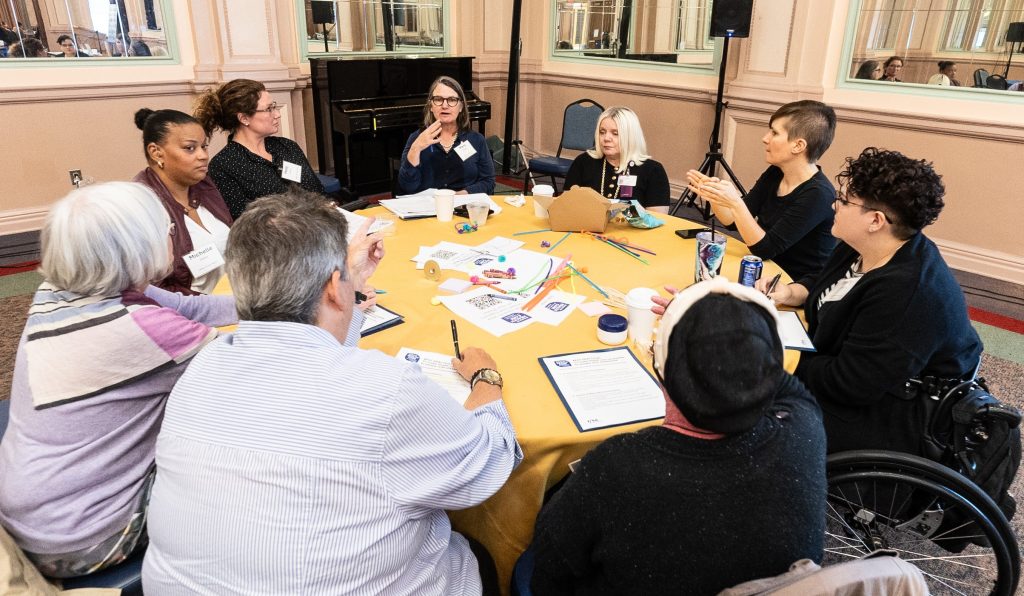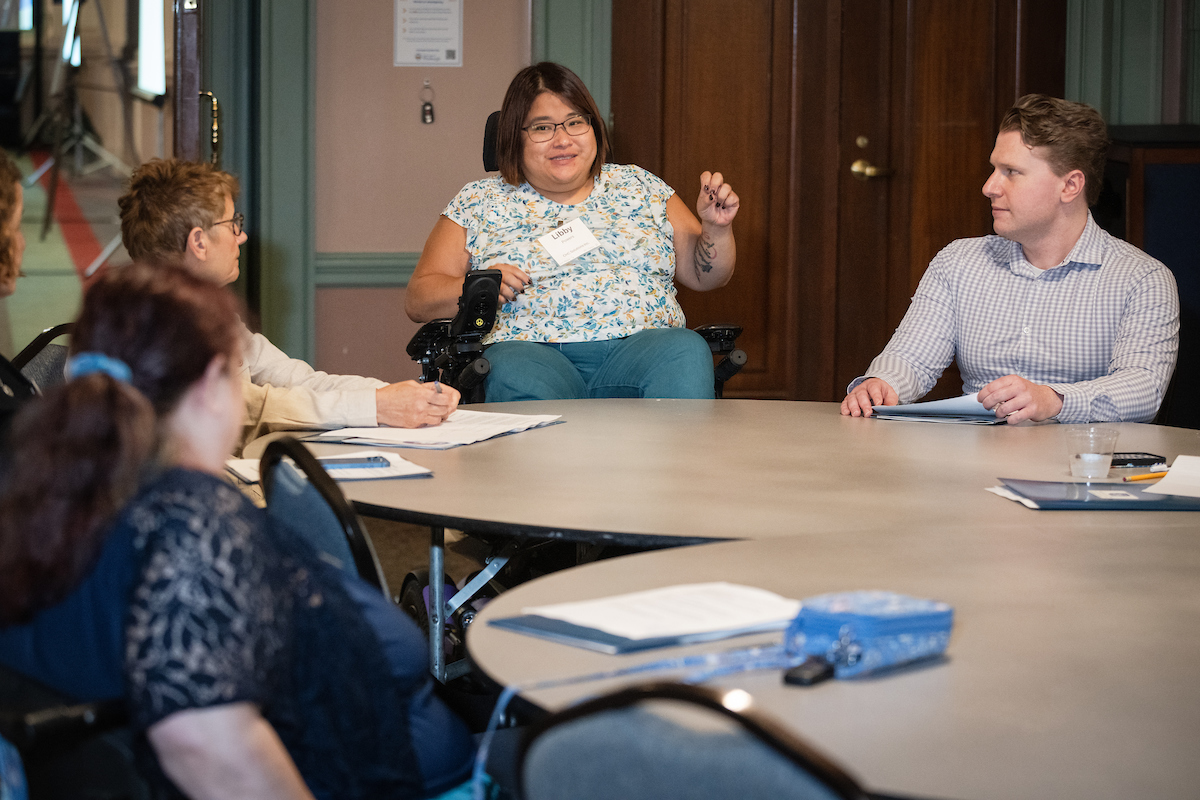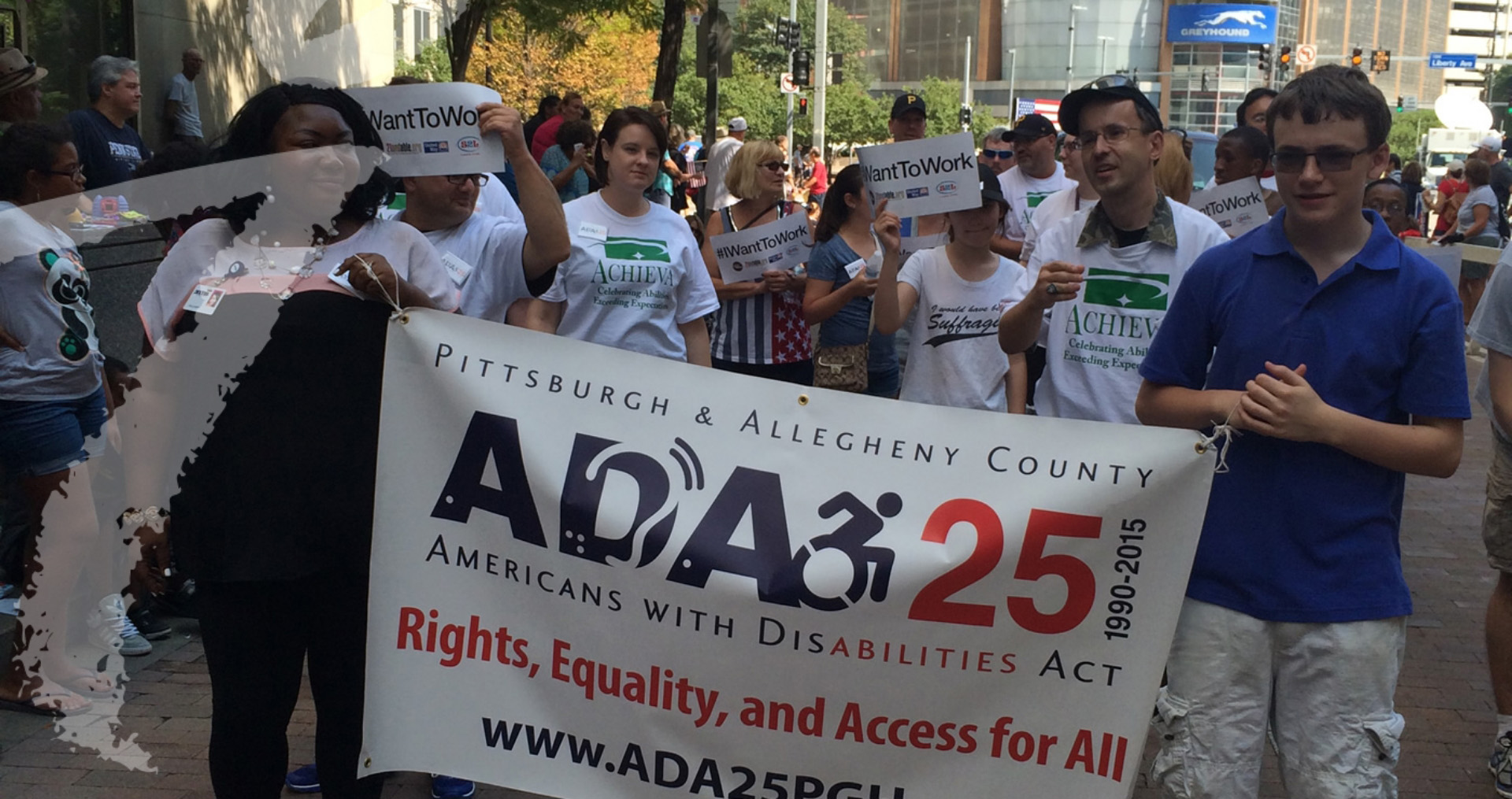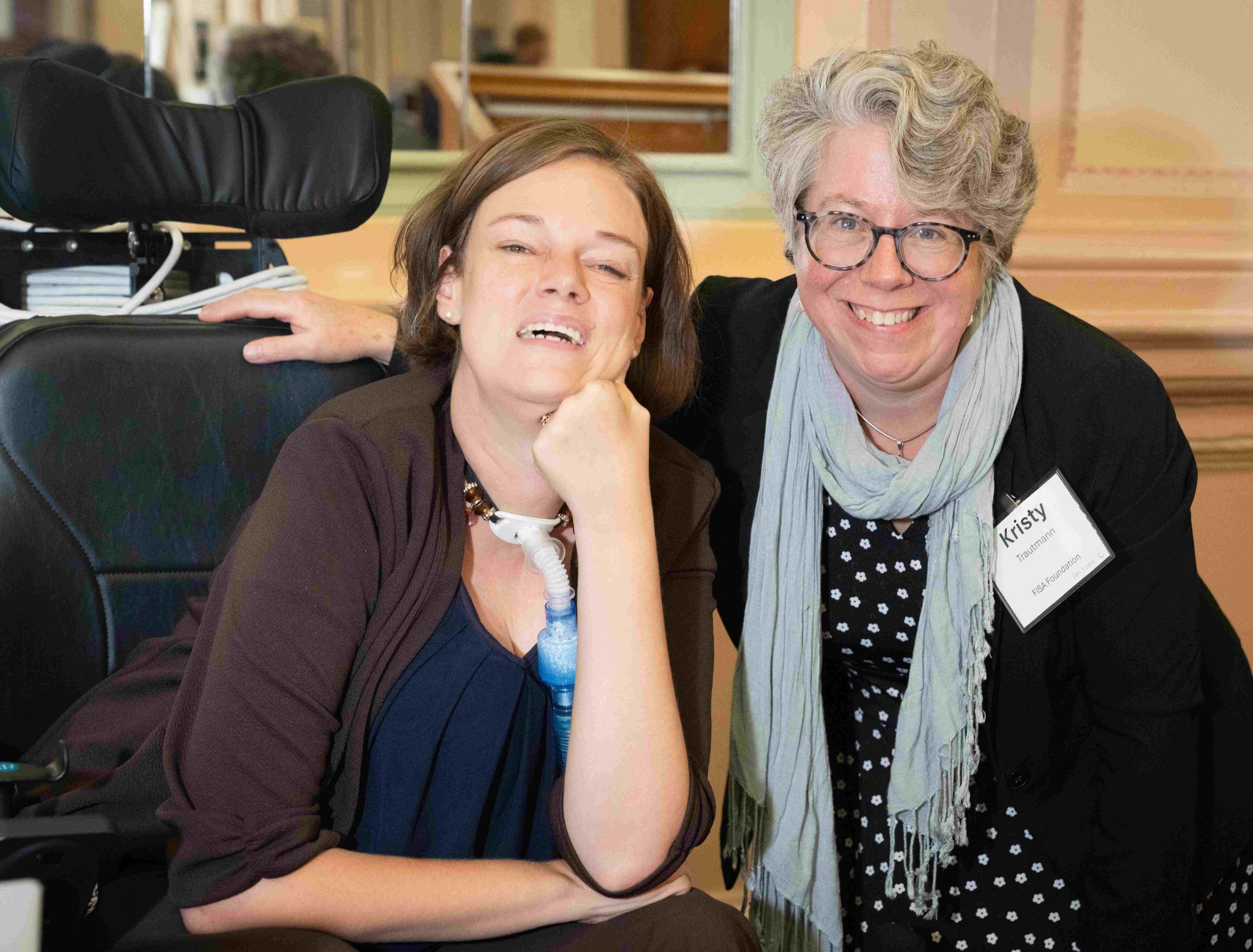For decades, people with disabilities have described pervasive barriers and problems in receiving health care: inaccessible medical equipment, troubles with scheduling ASL interpreters, important documents not offered in braille or large print, persistent discrimination and bias, and many other issues. These issues are made worse for people with disabilities who hold other marginalized identities—if they are a person of color, if they have multiple disabilities, if they identify as non-binary or LGBTQ+.
In September, FISA Foundation organized the convening HEAR US: Improving Health-care Access for People with Disabilities. Bringing together a community of health care advocates and allies, the goal of the convening was to center the voices of people with disabilities and receive input on priorities for creating change.
University of Pittsburgh Researcher Jessica Jarvis presented a brief overview of FISA’s latest commissioned report, A Far Cry From Fair: Health-care access for people with disabilities. The report presents scholarly research and quotes from interviews with disabled patients describing the multitude of barriers to quality health care that they face. The report overview was followed by a presentation from Josie Badger of J Badger Consulting on the report’s key findings. The report highlighted three major barriers that people with disabilities face:
- Access Barriers – Inaccessible medical equipment, transportation issues, and lack of accommodations.
- Bias and Discrimination – Many people with disabilities experience prejudice from healthcare providers, leading to subpar treatment.
- Financial Barriers – High costs and lack of insurance coverage prevent many from getting the care they need.
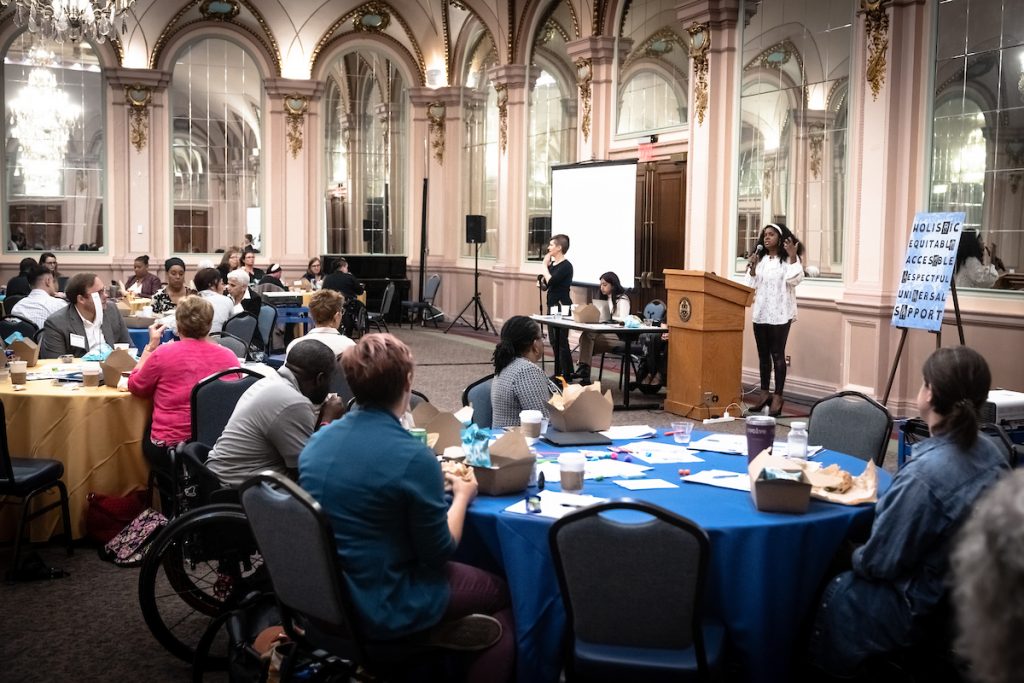
These barriers are widely experienced and urgent. As a result of biased and inaccessible care, people with disabilities experience unfair differences in health outcomes, unnecessary complications, avoidable suffering and even death. But there is hope. Participants also spoke of progress, of bright spots, of providers who go the extra mile and of programs that are models of accessible patient-centered care.
The HEAR US convening was just the beginning of our larger Access to Health Care initiative. FISA is committed to turning these conversations into action, and we’ll be working on the next steps to ensure meaningful change in health-care access for people with disabilities in our region. An enormous thank you to the allies and advocates that were in attendance.
Visit our newest webpage for this initiative, Access to Health Care for People with Disabilities, where you can access the report and materials presented during the convening. On this webpage you will find:
- FISA’s latest commissioned report: A Far Cry from Fair: Health-care Access for People with Disabilities, as an accessible PDF and in large print.
- One-page executive summary
- Fact sheets on barriers to health care
- Best practices in accessible health care
- A series of short, powerful, first-person testimony videos from people with disabilities, recounting their experiences accessing health care and what they would like to see improved.
